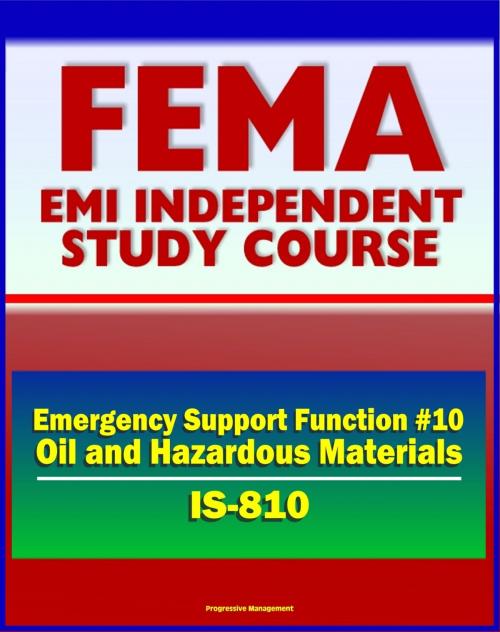21st Century FEMA Study Course: Emergency Support Function #10 Oil and Hazardous Materials Response (IS-810) - NCP, National Oil and Gas Hazardous Substances Pollution Contingency Plan
Nonfiction, Social & Cultural Studies, Political Science| Author: | Progressive Management | ISBN: | 9781466118201 |
| Publisher: | Progressive Management | Publication: | July 16, 2011 |
| Imprint: | Smashwords Edition | Language: | English |
| Author: | Progressive Management |
| ISBN: | 9781466118201 |
| Publisher: | Progressive Management |
| Publication: | July 16, 2011 |
| Imprint: | Smashwords Edition |
| Language: | English |
This Federal Emergency Management Agency (FEMA) independent training course manual from the Emergency Management Institute (EMI) introduces Emergency Support Function (ESF) #10 – Oil and Hazardous Materials Response Annex.
The National Response Framework (NRF) presents the guiding principles that enable all response partners to prepare for and provide a unified national response to disasters and emergencies – from the smallest incident to the largest catastrophe. As part of the NRF, Emergency Support Functions (ESFs) are primary mechanisms at the operational level used to organize and provide assistance. This series of courses provides an overview of each of the 15 ESFs. This course introduces Emergency Support Function (ESF) #10 – Oil and Hazardous
At the end of this course, students will be able to:
Describe the overall purpose and scope of ESF #10.
Identify the supplemental assistance ESF #10 provides to State, tribal, and local governments.
Identify typical actions accomplished by ESF #10 resources and teams.
Describe the types of partnerships formed between ESF #10 and other response agencies and organizations.
This course is intended for government executives, private-sector and nongovernmental organization (NGO) leaders, and emergency management practitioners. This includes senior elected and appointed leaders, such as Federal department or agency heads, State Governors, mayors, tribal leaders, and city or county officials – those who have a responsibility to provide for effective response.
Topics covered include: National Oil and Gas Hazardous Substances Pollution Contingency Plan (NCP), NCP information and definition, national response system.
This is a privately authored news service and educational publication of Progressive Management.
This Federal Emergency Management Agency (FEMA) independent training course manual from the Emergency Management Institute (EMI) introduces Emergency Support Function (ESF) #10 – Oil and Hazardous Materials Response Annex.
The National Response Framework (NRF) presents the guiding principles that enable all response partners to prepare for and provide a unified national response to disasters and emergencies – from the smallest incident to the largest catastrophe. As part of the NRF, Emergency Support Functions (ESFs) are primary mechanisms at the operational level used to organize and provide assistance. This series of courses provides an overview of each of the 15 ESFs. This course introduces Emergency Support Function (ESF) #10 – Oil and Hazardous
At the end of this course, students will be able to:
Describe the overall purpose and scope of ESF #10.
Identify the supplemental assistance ESF #10 provides to State, tribal, and local governments.
Identify typical actions accomplished by ESF #10 resources and teams.
Describe the types of partnerships formed between ESF #10 and other response agencies and organizations.
This course is intended for government executives, private-sector and nongovernmental organization (NGO) leaders, and emergency management practitioners. This includes senior elected and appointed leaders, such as Federal department or agency heads, State Governors, mayors, tribal leaders, and city or county officials – those who have a responsibility to provide for effective response.
Topics covered include: National Oil and Gas Hazardous Substances Pollution Contingency Plan (NCP), NCP information and definition, national response system.
This is a privately authored news service and educational publication of Progressive Management.















